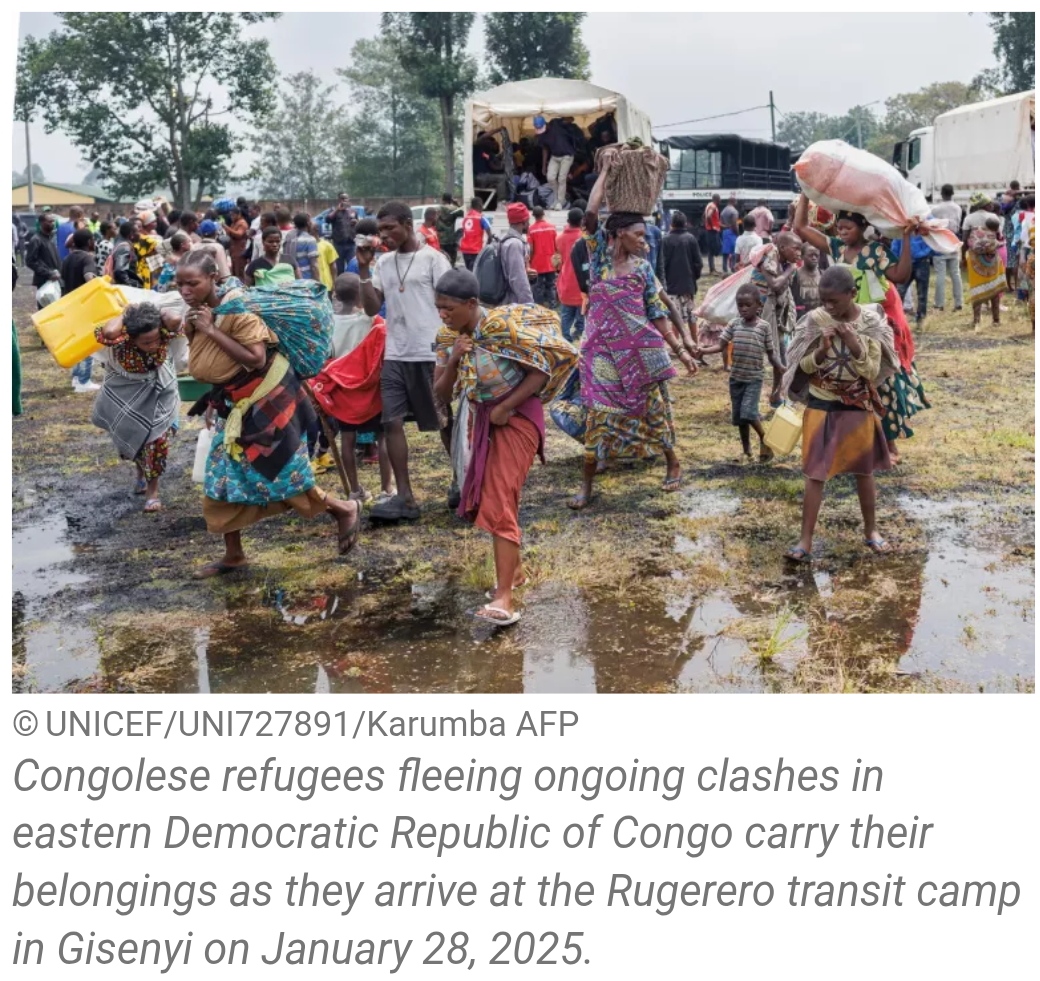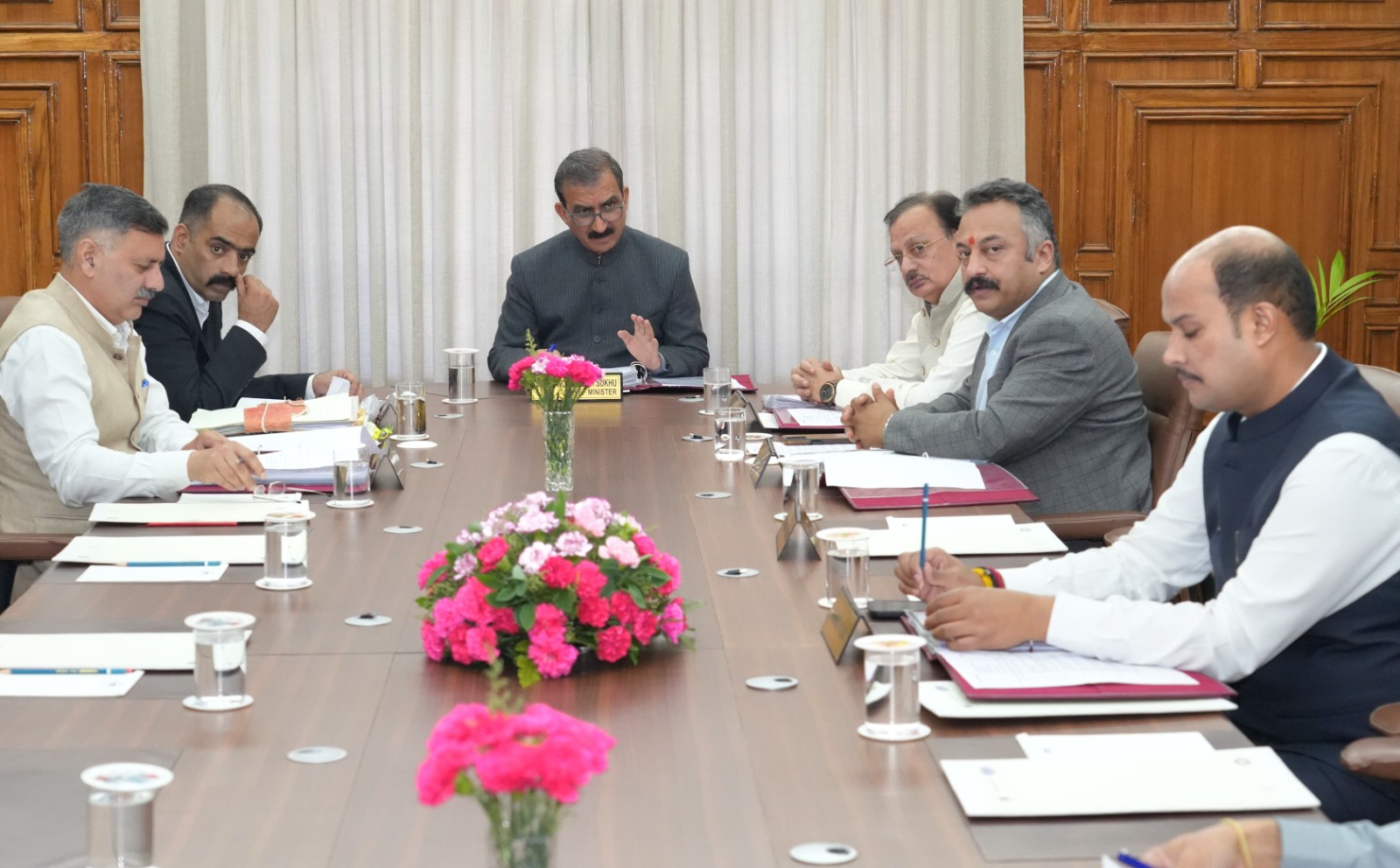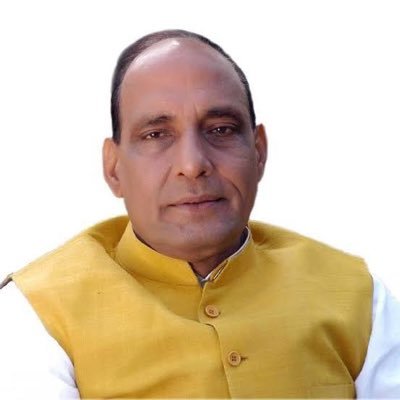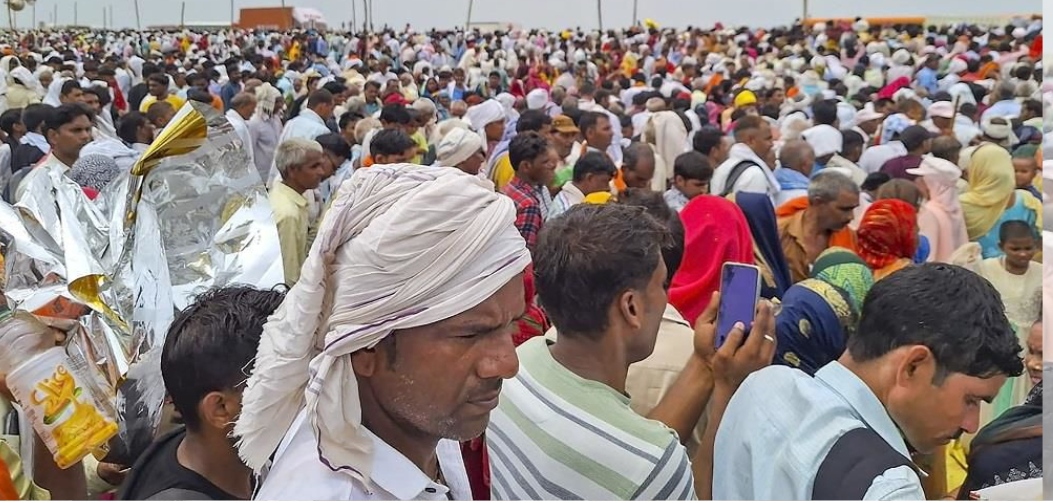Humanitarian Crisis Deepens in Eastern DR Congo as Conflict Intensifies, UNICEF Warns of Grave Risks to Children.
KINSHASA:
The United Nations Children’s Fund (UNICEF) has raised alarm over the worsening humanitarian crisis in eastern Democratic Republic of Congo (DRC), which has been exacerbated by the recent intensification of armed conflict and a sharp rise in displacement. In the past three months alone, over 658,000 people have fled their homes in the North Kivu and South Kivu provinces, with at least 282,000 of the displaced individuals being children.
The ongoing violence, which has now reached Goma, the capital of North Kivu, has forced families to flee their homes multiple times in search of safety. Many are abandoning displacement camps on the city’s outskirts and relocating to more central areas of Goma, with some families moving as many as three to five times in recent weeks in a desperate attempt to escape the violence.
Jean Francois Basse, UNICEF’s acting Representative in DRC, expressed grave concern about the dire conditions faced by families, particularly children. “The situation in Goma is extremely grave and further complicates a humanitarian crisis that was already beyond dire,” said Basse. “People have been exposed to traumatic events, and they are hungry, thirsty and exhausted. Families are sheltering in place to avoid being caught up in the violence. Electricity, water, and internet have all been cut. It’s hard to overstate how deeply children and their families are suffering.”
The main threats to children in the region are health and protection-related. The overcrowded and unsanitary conditions in makeshift shelters heighten the risk of diseases such as cholera, measles, and mpox. Many parents are reluctant to take their sick children to hospitals, fearing both the crossfire of ongoing conflicts and the lack of medical resources due to overwhelmed facilities.
Reports also indicate a disturbing increase in the number of children separated from their families, exposing them to greater risks of abduction, recruitment by armed groups, and sexual violence.
In response to the urgent needs, UNICEF is calling for $22 million in funding to continue its life-saving work in the region. This includes providing access to clean water and sanitation, distributing essential medications and medical supplies, treating severely malnourished children, and offering protection services to vulnerable minors.
Basse also urged all parties involved in the conflict to take immediate action to de-escalate military operations, emphasizing that the ongoing violence is intensifying the suffering of children and further worsening the already precarious humanitarian situation.
“Ultimately, we need parties to the conflict to put an end to the military escalation, which is exacerbating the suffering of children and worsening the already appalling humanitarian conditions,” Basse concluded.




